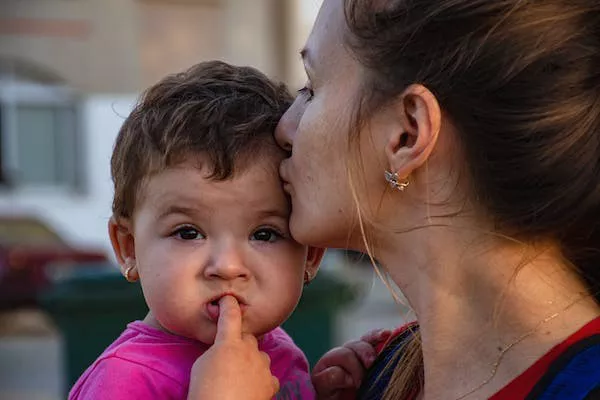The common cold, despite its seemingly innocuous name, can be a disruptive force in our lives. Sneezing, often one of its hallmark symptoms, can occur at various stages throughout the course of the illness. In this article, we delve into the complexities of the cold virus, exploring the factors that trigger sneezing and the stages at which it commonly occurs.
Understanding the Common Cold
Before delving into the specifics of sneezing, it’s essential to understand the common cold itself. The common cold is a viral infection primarily caused by rhinoviruses, though other viruses such as coronaviruses and adenoviruses can also be culprits. It affects the upper respiratory tract, leading to symptoms such as nasal congestion, sore throat, coughing, and of course, sneezing.
The Physiology of Sneezing
Sneezing is a reflexive response of the body to remove irritants from the nasal passages. When irritants such as viruses, bacteria, dust, or allergens enter the nasal lining, sensory receptors known as nociceptors are stimulated. These receptors send signals to the brain, triggering a response aimed at expelling the irritants.
The sneeze reflex involves a coordinated effort of various muscles. The diaphragm contracts, while muscles in the chest and abdomen compress the lungs, generating a sudden burst of air. Simultaneously, muscles in the throat and face contract, closing the eyes and mouth. The forceful expulsion of air through the nose clears the nasal passages of irritants, providing temporary relief.
Stages of the Common Cold and Sneezing
The common cold typically progresses through several stages, each marked by distinct symptoms. Sneezing can occur at various points during this progression, depending on individual factors and the specific viral strain involved. Let’s explore the stages of the common cold and when sneezing is most likely to occur:
Stage 1: Incubation Period
The incubation period is the time between exposure to the cold virus and the onset of symptoms. During this stage, the virus begins to replicate within the body, but symptoms may not yet be present. Sneezing is unlikely to occur during the incubation period, as the body has not yet mounted a significant immune response.
Stage 2: Prodromal Stage
The prodromal stage marks the onset of initial symptoms, signaling the body’s immune response to the invading virus. Common symptoms during this stage include fatigue, sore throat, and nasal congestion. Sneezing may begin to occur as the nasal passages become irritated by the presence of the virus.
Stage 3: Acute Stage
The acute stage is when cold symptoms are typically at their peak. Nasal congestion intensifies, accompanied by copious mucus production. Sneezing is prevalent during this stage as the body attempts to expel the virus and clear the nasal passages. It serves as a mechanism to remove irritants and facilitate airflow.
Stage 4: Subsiding Symptoms
As the body’s immune system begins to successfully combat the virus, symptoms gradually subside. Sneezing may continue during this stage but tends to decrease in frequency and intensity as the nasal passages clear and inflammation resolves.
Stage 5: Recovery
In the final stage of the common cold, symptoms have largely resolved, and the body is in the process of full recovery. Sneezing should diminish significantly or cease altogether as the immune system eliminates the remaining virus and repairs any tissue damage.
Factors Influencing Sneezing
While the stages outlined above provide a general framework for when sneezing may occur during a cold, several factors can influence its frequency and intensity:
1. Viral Strain: Different strains of cold viruses may cause varying degrees of nasal irritation, leading to differences in sneezing patterns.
2. Individual Immune Response: The body’s immune response to the virus can vary from person to person, affecting the severity and duration of symptoms, including sneezing.
3. Environmental Factors: Allergens, pollutants, and other environmental irritants can exacerbate nasal symptoms and trigger sneezing, particularly for individuals with underlying sensitivities.
4. Health Status: Underlying health conditions, such as allergies or chronic sinusitis, can predispose individuals to more frequent sneezing during a cold.
Managing Sneezing During a Cold
While sneezing is a natural and essential reflex for clearing the nasal passages, it can be uncomfortable and disruptive, especially when frequent. Here are some strategies for managing sneezing during a cold:
1. Stay Hydrated: Drinking plenty of fluids helps thin mucus and keeps nasal passages moist, reducing irritation and the urge to sneeze.
2. Use Saline Nasal Sprays: Saline nasal sprays help moisturize nasal passages and flush out irritants, providing relief from congestion and sneezing.
3. Practice Good Hygiene: Regular handwashing and avoiding close contact with others can help prevent the spread of the virus and reduce the likelihood of recurrent colds and sneezing.
4. Try Over-the-Counter Remedies: Over-the-counter antihistamines or decongestants may help alleviate sneezing and other cold symptoms, but use them cautiously and follow dosing instructions.
5. Rest and Relaxation: Getting adequate rest and minimizing stress supports the immune system’s ability to fight off the virus and reduce sneezing.
Conclusion
Sneezing is a common symptom of the common cold, occurring primarily during the acute stage when nasal congestion is at its peak. Understanding the stages of the common cold and the factors influencing sneezing can help individuals better manage their symptoms and facilitate a quicker recovery. By adopting appropriate self-care measures and seeking medical attention when necessary, individuals can alleviate sneezing and other cold symptoms, allowing them to resume their daily activities with minimal disruption.


